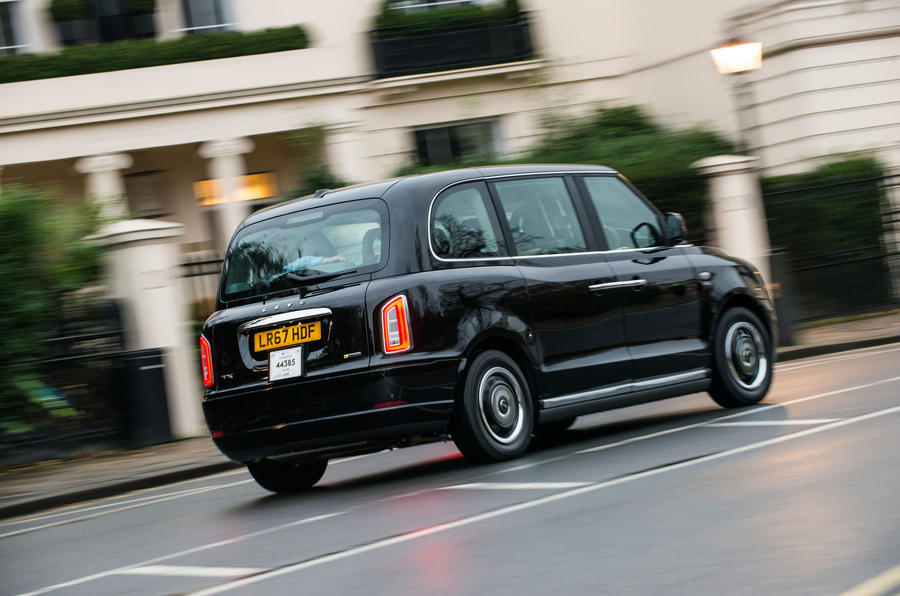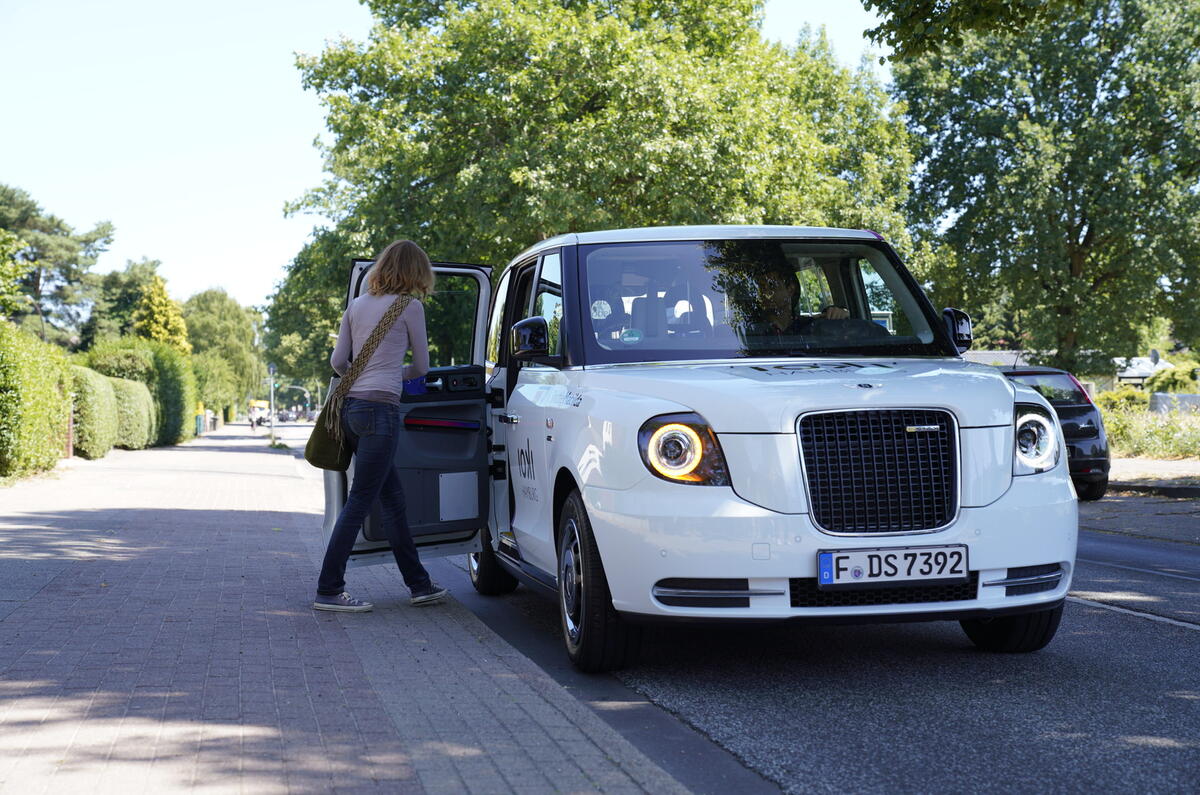London’s black cab drivers have seen more change to their industry in the last five years than, potentially, in the last 50.
The threat to their business model from on-demand ridesharing services is substantial, and new Transport for London legislation this year means that every new taxi sold must be capable of at least 30 miles of zero-emissions driving.
The London Taxi Company responded as rapidly as it could, changing its name to the London Electric Vehicle Company (LEVC) and, with the financial might of Geely ownership, bringing to market the TX range-extending electrified cab.
First drive: LEVC TX taxi on the streets of London
Late in January this year, the first example found a home, and LEVC claimed it had 200 orders in the pipeline. As the year comes to an end, I caught up with CEO Chris Gubbey to see how things have progressed.
Gubbey claims the year has been a positive one, noting the product has been “extremely well received” by drivers and passengers alike. There are now more than 1000 examples operating in the UK, which combined have racked up seven million miles to date. In fact, the biggest problem has been meeting demand.
“On production targets, it was harder to ramp up than we were expecting," he says. "It’s the combination of a brand new, more complex product, a brand new facility and new manufacturing processes that have put a lot of tension in the system”.
Despite this, LEVC is now at a stage where it can churn out 6000 examples annually on a single production shift. And it should need this - with a number of clean air zones being established in cities such as Manchester, Glasgow and Birmingham in 2019, demand is expected to increase exponentially.







Join the debate
Add your comment
london air vs traffic
according to the dft website, traffic in london has been gradually falling, with there now being 2thirds of the traffic count that there was in 2000. if the air quality has been getting worse over this period, then traffic is unlikely to have been the cause, especially when you consider that over that period emissions quality of vehicles has been improving. This shouldn't be taken as me being against the improvements such as the new london bus and taxi, but i do think the wrong tree is being barked up - or at least that there are other trees which also need a good barking at
Had a ride in one on Friday night
Normally I use uber as the product is far superior to black cabs in every measure, but I'd been wanting to try out the new TX and on Friday night was very impressed. As we quietly wafted along, my friends couldn't believe the panoramic roof, and the driver said how he does a mixture of fast charging and using the REX.
Now to stop wasting everyone's time learning the knowledge, and the price of a ride will become sensible too.
@ Phil R
I took a ride in an Uber once as a friend insisted on 'impressing me/converting me with Ubers service'
Suffice it to say I remain unimpressed....its just another mini-cab driver with no real knowledge of London and not much knowledge of the English language either, slavishly folowing his (fallible) sat-nav!
Cant see anything clever about that at all, and certainly wont be downloading their app with my personal details.
Not just Taxis....
What about all the other service Vehicles that daily go into the major Cities of the UK?, yes, there a small Vans, but, what about five ton Trucks?, all the Buses large and small?, what about all the Zboats going up and down the Thames?,are they EV yet?, and that’s before you get to what flys overhead 24/7...Aeroplanes!